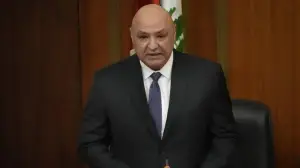International Atomic Energy Agency (IAEA) Director General Rafael Grossi has formally proposed a direct meeting with Iranian Foreign Minister Abbas Araghchi, seeking renewed cooperation on Tehran's controversial nuclear program amid escalating tensions in the Middle East.
Speaking from Vienna after an extraordinary session of the IAEA Board of Governors, Grossi confirmed he has written to Araghchi requesting the meeting. He emphasized that "Iran resuming cooperation with the agency could pave the way for a diplomatic solution."
The timing of Grossi's outreach is particularly significant, coming just hours after Iran launched ballistic missiles at Israel despite a US-brokered ceasefire intended to halt hostilities between the two nations. Israel has vowed to respond forcefully to what it describes as a grave violation of the truce agreement.
Call for Transparency and Dialogue
"I call on Iran to seize the opportunity presented by the current diplomatic momentum to reengage constructively with the IAEA," Grossi stated. "Transparency and dialogue are vital to restoring international confidence in the peaceful nature of Iran's nuclear program."
While Iran continues to maintain that its nuclear activities are solely for civilian purposes, the IAEA and Western powers have repeatedly expressed concerns over several developments, including:
Iran's enrichment of uranium to weapons-grade levels
Restrictions placed on international inspectors
The country's expanding ballistic missile arsenal
Israeli officials have claimed that Tehran has taken recent steps toward weaponization, intensifying fears that the Islamic Republic is moving closer to developing a nuclear bomb – an assertion Iran vehemently denies.
Regional Implications
The diplomatic initiative comes at a critical juncture in Middle Eastern geopolitics. The recent missile exchange between Iran and Israel has threatened to unravel the fragile ceasefire, with potential ramifications extending beyond the immediate conflict to include nuclear non-proliferation efforts in the region.
Analysts suggest that Grossi's intervention represents a crucial opportunity to de-escalate tensions through diplomatic channels, potentially creating space for broader negotiations on regional security concerns.
As of publication time, Iranian officials have not publicly responded to Grossi's meeting proposal.
Stay updated on this developing story by following BenriNews on our social media platforms:













